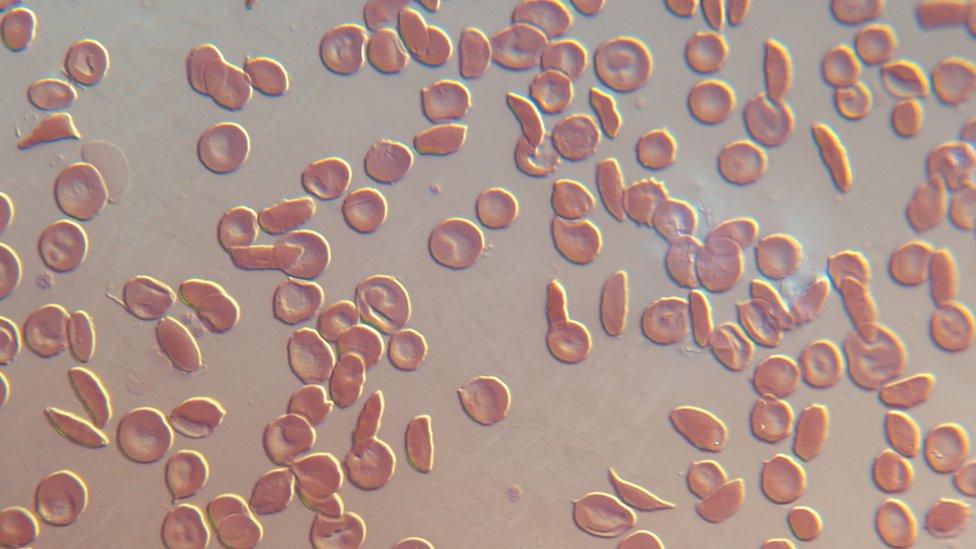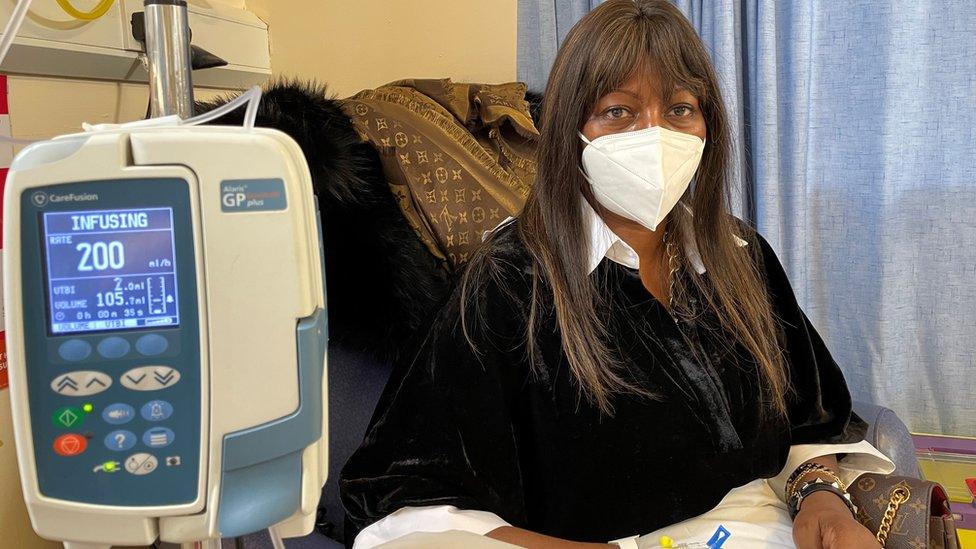Sickle cell: Birmingham woman raises awareness with books
- Published

Jenica Leah has written a number of books
A Birmingham woman with sickle cell has written a series of children's books to help raise awareness of the condition.
Jenica Leah has had many complications from the disease including a stroke aged 13 and a hip replacement at 25.
She says her books, in the My Friend Jen series, are designed to improve understanding of the illness, which is particularly common among black people.
Ms Leah, who was diagnosed with the condition as a baby, will also hold events as part of Black History Month.
Speaking to the BBC, she explained people with the condition have red blood cells that do not retain their shape.
A 'horrible condition'
"Instead of being round, squishy and easy to flow through the blood, veins and all around the body, ours change shape into what's called a sickle or, as I like to say, letter C," she said.
"These cells become hard and sticky and clump together and they can restrict oxygen essentially flowing anywhere that blood is supposed to go in the body. When that happens, it causes excruciating pain, something that is known as a sickle cell crisis.
"That is one of the most common symptoms of sickle cell. Our body needs oxygen, our organs need oxygen, everything needs oxygen to flourish and survive and so when that oxygen is restricted from different parts of the body it can also lead to other complications, such as blindness and bone issues.
"It's a horrible and debilitating condition but unfortunately it's one that I'm living with."

What is sickle cell disease?

People with sickle cell disease produce unusually shaped red blood cells
Sickle cell disease is the name for a group of inherited health conditions that affect red blood cells.
People with sickle cell disease, external produce unusually shaped red blood cells that can cause problems as they do not live as long as healthy cells and can block blood vessels.
It is particularly common in people with an African or Caribbean family background.
Sickle cell disease is a serious and lifelong health condition, although treatment can help manage symptoms, which can include anaemia, lung problems and strokes.
Source - NHS, external

Ms Leah said she was driven to write the books through her experience of growing up with the disease.
"I felt isolated growing up," she said.
"Even though I knew I had this thing called sickle cell, I didn't really know what it meant.
"I knew I went to hospital, I knew I got better again, but I didn't really understand it.
"By writing these children's books, I wanted to create something that I wish I had when I was a child. I think that would have given me more peace of mind, more confidence to speak about my condition and just a better understanding of the condition as a whole."
'Gets tired easily'
Her books are written from the perspective of her character Jen's friend.
"What I wanted to do was, not only for children growing up with sickle cell to have that confidence, but also to give their peers and support system around them the opportunity to also stick up for them and explain what things they have to do to stay well," she said.
"Things such as, 'My friend Jen has to drink a lot', 'My friend Jen has to get lots of rest', 'My friend Jen gets tired very easily'.
"Little things that are easily broken down to explain to people things that their friend or family member... can do to stay well."
As part of Black History Month, Ms Leah will hold a cultural workshop at Bear Book Shop, Bearwood, on Thursday 27 October.
And on Friday 28 October, she will run an online workshop all about the history of sickle cell.

Follow BBC West Midlands on Facebook, external, Twitter, external and Instagram, external. Send your story ideas to: newsonline.westmidlands@bbc.co.uk, external
Related topics
- Published13 June 2022

- Published24 February 2022

- Published20 February 2022
